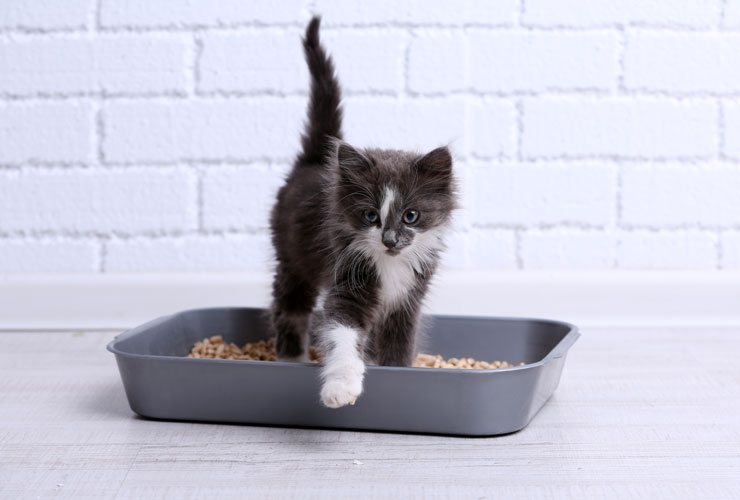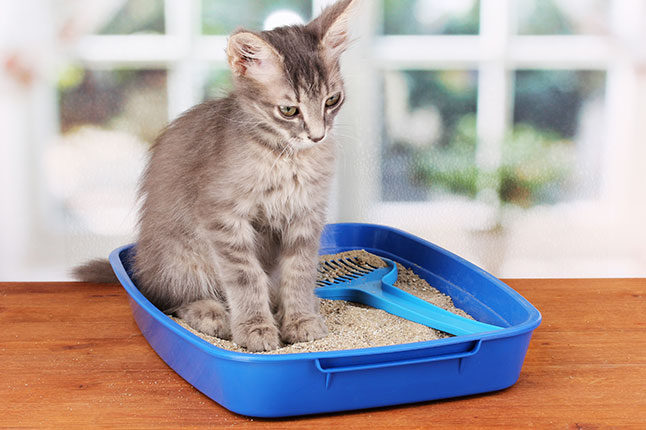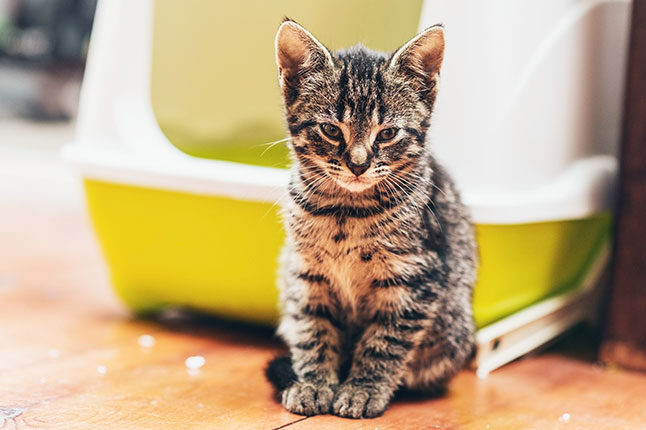
Why Does the Vet Want My Pet’s Poop Sample?
You’re used to bringing your pet in for regular veterinary appointments to update vaccinations. When it comes to your pet’s health, this is a strong start, but it’s important to talk with your veterinarian about health screening for pets, too.
What Is Pet Health Screening?
Pet health screening is the process of running diagnostic tests like blood panels, urinalyses, and fecal tests to screen pets for the earliest signs of disease and parasites. During your pet’s checkup, our veterinarian might recommend running a few diagnostic tests – even though your pet seems healthy and has no signs or symptoms of illness.


The Importance of Regular Fecal Tests for Pets
It might seem strange for our veterinarian to request a fresh sample of your pet’s “business,” but there’s a good reason why we ask this of you. Fecal tests check your pet for signs of intestinal parasites, which can put a cat’s, dog’s, and even your own health at risk.
Fecal tests screen for the following intestinal parasites:
- hookworms
- roundworms
- whipworms
- giardia
- coccidia
Without testing, fecal parasites often go completely undetected because they live inside your pet’s gastrointestinal tract and signs of them aren’t usually seen with the naked eye (at least not before they begin damaging your pet’s health). Regular fecal testing allows our veterinarians to detect intestinal parasites in pets and provide them with the proper treatments only when needed.
Does My Indoor-Only Pet Need a Fecal Test?
Even though your pet lives exclusively indoors, it’s still possible for them to contract intestinal parasites. Kittens and puppies can contract them from an infected mother. Pets can be exposed with just a quick sniff of the ground or from licking paws that have been outside only briefly. Indoor cats can even contract intestinal parasites from ingesting fleas that come indoors on our clothes.


How to Collect Your Pet’s Sample
Certain signs of parasites can break down or be diminished as time passes, so fresh samples are best. If possible, collect a sample in a clean, plastic storage bag right before your pet’s appointment. Samples can be kept overnight in the refrigerator. However, the fresher the sample, the better the results.
Ask Our Goldsboro Veterinarian About Fecal Testing
If your pet has an upcoming wellness appointment, we welcome you to contact our staff to inquire about fecal testing. We’ll be happy to provide you with further instructions for collecting and dropping off your pet’s sample. To learn more or schedule a wellness and preventative care appointment for your dog or cat, contact Eastwaye Veterinary Clinic today.




